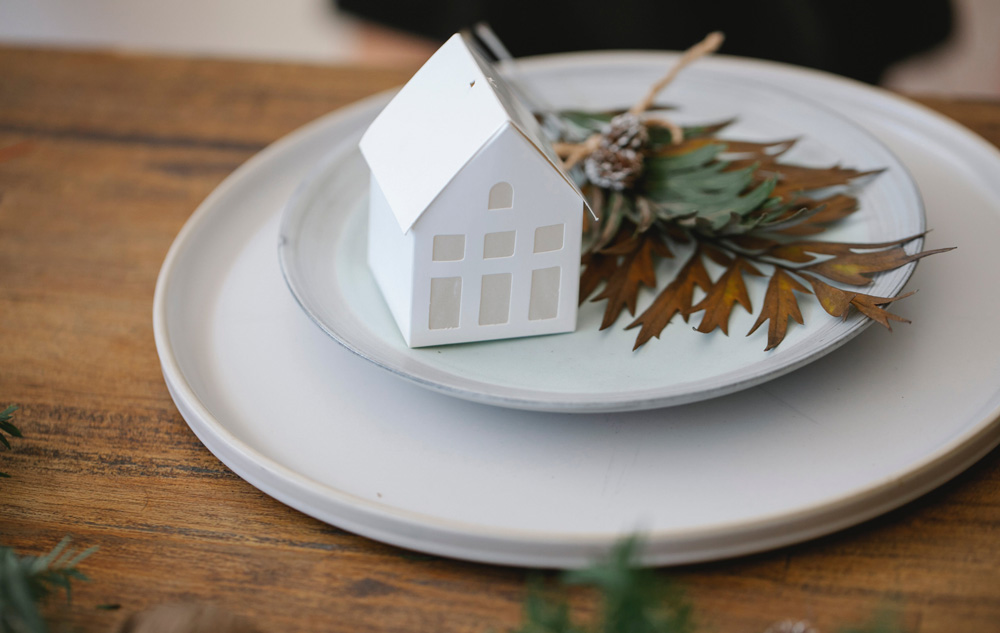We are thrilled to share some thoughts from one of our counselors, Ruth Juneau. Ruth is a firm believer in the potential for personal transformation and healing. She is passionate about assisting individuals in living authentically by helping them overcome obstacles. As a therapist, her primary focus is helping both adults and teens untangle the complexities in their lives that cause feelings of being lost, stuck, anxious, or inadequate. Ruth specializes in working with a variety of issues, including eating disorders, trauma, grief, self-esteem, depression, anxiety, life transitions, and women’s concerns, and, upon request, she offers an integrative trauma-informed approach incorporating spirituality. Keep reading to find out what Ruth has to share about staying grounded during the holidays.
The holiday season can be a beautiful and joyous time filled with love, laughter, and cherished traditions. However, for many individuals, it can also be a time of stress, anxiety, and challenges, especially for those struggling with eating disorders. As an eating disorder therapist, I understand the unique struggles that can arise during this period. In this blog post, I will share strategies and a self-care/cope ahead plan to help you stay grounded during the holidays.
Identifying Triggers:
Before diving into self-care and coping strategies, it’s crucial to identify your specific triggers. This can vary greatly from person to person, but common triggers might include:
1. Family gatherings: These events can bring about anxiety and stress, especially if there are issues surrounding food or body image within your family.
2. Social expectations: The pressure to engage in diet-centric discussions or activities can be challenging.
3. Changes in routine: The holidays often disrupt your regular schedule, making it harder to maintain a structured eating plan.
4. Negative self-talk: The holiday season can magnify your inner critic and self-doubt. How to Cope:
1. Mindfulness: Engage in mindful eating practices, focusing on savoring each bite. Recognize your emotions and urges without judgment.
2. Set Boundaries: Communicate your boundaries with family and friends regarding conversations and activities that may trigger you. Advocate for your well-being.
3. Support System: Reach out to your support system, whether it’s a therapist, a friend, or a family member. Discuss your feelings and concerns openly.
4. Self-Compassion: Practice self-compassion by countering negative self-talk with self-affirming statements. Be gentle with yourself in moments of struggle.
5. Plan Alternatives: Identify alternative coping strategies to replace harmful behaviors. For example, journaling, going for a walk, or engaging in a creative hobby can serve as healthy distractions.
People I Can Call:
Create a list of individuals you can turn to when you’re feeling overwhelmed. This might include:
1. Close friend: Lean on a trusted friend who understands your journey and can provide a listening ear.
2. Support group: If you’re part of an eating disorder support group, don’t hesitate to reach out to fellow members who share your experiences.
3. Therapist or counselor: Your therapist is a crucial source of guidance and support, especially during the holiday season.
Places I Can Go:
Having safe spaces to retreat to can be vital during the holidays:
1. Nature: Nature can be a soothing escape. Consider taking a walk in a park or spending time by the water to clear your mind.
2. Quiet room at home: Designate a quiet, peaceful space at home where you can retreat when feeling overwhelmed.
3. Library or coffee shop: These public spaces offer a change of scenery and a chance to regroup.
How Far I’ve Come/Progress Made:
Reflect on your journey and the progress you’ve made. Acknowledge your accomplishments, no matter how small they may seem. Remind yourself of the strength and resilience that have brought you this far.
Encouraging Words/Hopeful Truths:
Compile a list of encouraging words and hopeful truths that resonate with you. Here are a few examples:
- “I am enough.”
- “I am worthy of love and support.”
- “I am more than my body.”
- “I am resilient.”
- “I deserve love, happiness, and health.”
- “Recovery is a journey, not a destination.”
- “Each day, I am one step closer to freedom.”
Self-Care/Cope Ahead Plan Template:
Use this template to create your own self-care and cope ahead plan:
Triggers:
1.
2.
3.
How to Cope:
1.
2.
3.
4.
People I Can Call:
1.
2.
3.
Places I Can Go:
1.
2.
3.
How Far I’ve Come/Progress Made:
Encouraging Words/Hopeful Truths:
●
●
●
By creating a personalized self-care and cope ahead plan, you can navigate the holiday season with more confidence and resilience. Remember, you are not alone, and there is hope for a healthier, happier, and more fulfilling future. Stay grounded, stay strong, and embrace the joy of the season while prioritizing your well-being.
We hope you enjoyed these thoughts and action plan from Ruth today. If you saw yourself in any of the words that she shared, maybe now is the time to take some important steps toward healing and peace. To start working with Ruth, call our office today at 615.510.3797 or click here.





